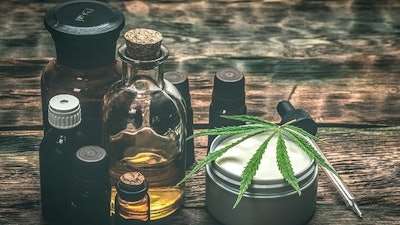
2020 will always be remembered as the year of coronavirus. In the retail marketplace, people were driven away from physical retail stores and became increasingly reliant on remote shopping. Also, many nervous consumers dealing with pandemic-induced stress and sleeping disorders have been embracing the relatively new marketplace of cannabidiol (CBD) products.
Unfortunately, this dynamic has created a perfect storm for fraud, as scam artists hide behind the anonymity of the internet and prey on unsuspecting consumers with subpar, fake and/or counterfeit CBD goods.

With snowballing fraud now jeopardizing the growth of the industry, it has become absolutely critical for manufacturers and distributors of CBD products to quickly stem the tide of abuse and guard against any further erosion of the relationship between consumer expectations and the CBD industry. Luckily, the United States Patent and Trademark Office (USPTO) and many online retail outlets now have tools available to help protect CBD brands and their customers from online scams.
In an effort to slow the spread of fraud and counterfeits on its platform, Amazon has enacted a brand registry system that provides trademark owners with enhanced tools to more accurately present their brands to consumers, find and remove counterfeit products and other violations, and work directly with the Amazon enforcement team to proactively prevent violations and build brand presence.
These tools are invaluable in building marketplace momentum and protecting consumer interactions with your brand; however, a company must have an active federal trademark registration in order to participate. Amazon will not accept any other method of validating brand ownership for purposes of the registry, so trademark registration is now even more important than in the past.

However, with the loosening of state and federal laws, it is now permissible to register such marks, as long as the products reflect USDA-compliant CBD with a concentration of less than 0.3% tetrahydrocannabinol (THC).
As a result, any CBD company looking to maximize the strength of its rights and build brand preference has more tools at its disposal than ever before. The first step is to seek registration with the USPTO. The process is relatively easy and cost-effective, and any trademark attorney can get you started.
It generally takes a year to receive the registration certificate required to participate in the Amazon Brand Registry, so it is important to initiate the process right away. In the meantime, the USPTO provides other recommendations for combating online fraud, including making sure your product description sounds legitimate, the packaging looks professional, the price does not sound too good to be true, and that you establish the manufacturer as a trusted CBD source.
As the world continues to redefine the future of retail, we have been working diligently with our clients to ensure they are well-positioned to thrive—with strong brands and strong online protection. Happily, our CBD clients are no longer prohibited from enjoying these same marketplace advantages.
John Pickerill is a shareholder at Fredrikson & Byron, a business law firm based in Minneapolis. Pickerill started his career in advertising, and now is a trademark and advertising attorney, with a special emphasis on social media legal issues. He can be reached at [email protected].























